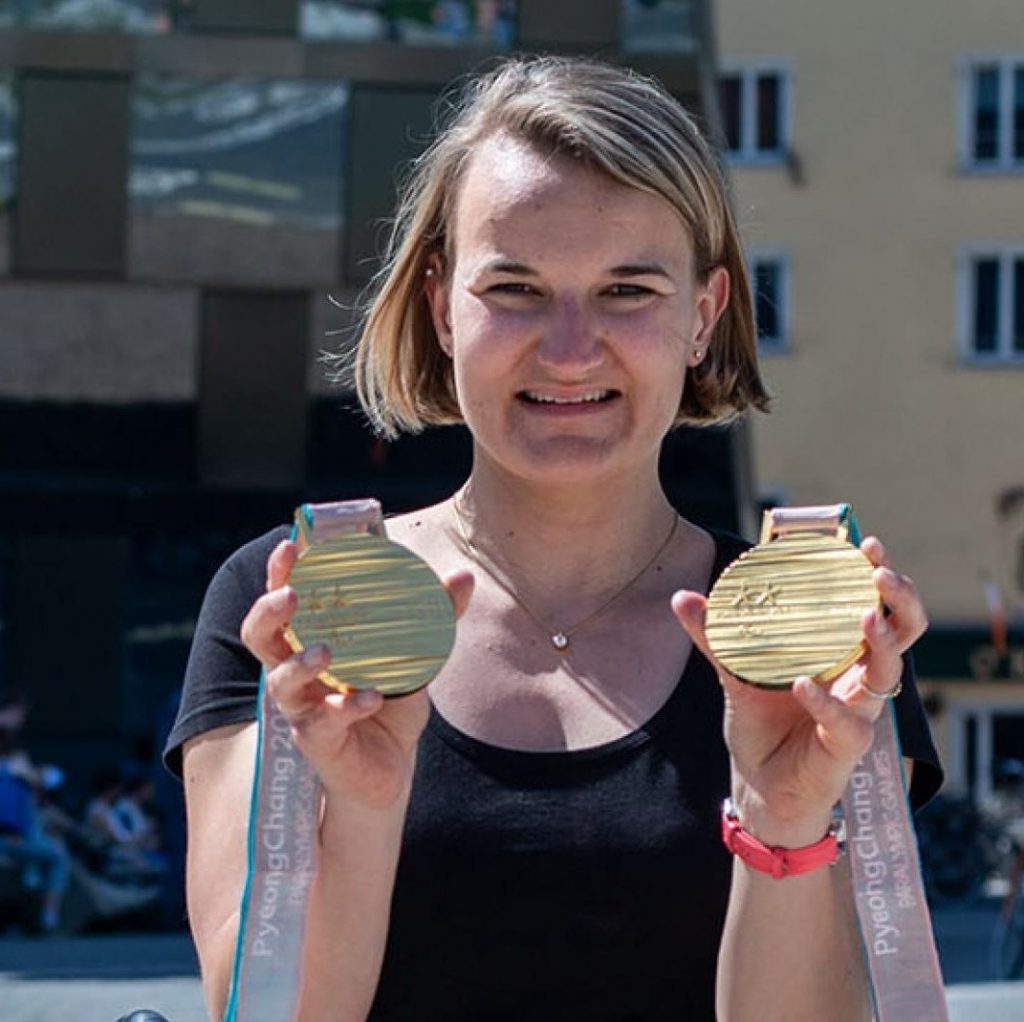Paralympics Winner Anna-Lena Forster

After completing her bachelor’s degree in psychology, Anna-Lena Forster began her master’s programme at the University of Freiburg in the 2022/23 winter semester. The para-alpine skier thus demonstrates that it is possible to pursue an academic education while competing in professional sports – even if it takes longer than the standard period of study and demands flexibility from everyone involved.
Combining an ambitious sports career and a challenging course of study in psychology is a balancing act, and it is one that Anna-Lena Forster, multiple Paralympics gold medallist and para-alpine skiing world champion, has been performing at the University of Freiburg since 2014. ‘I spend more than 120 days on skis in winter’, says the athlete. She travels to the mountains each year at the end of August to train her technique at 3,000 meters above sea level. She returns to the Freiburg-Black Forest Olympic Training Centre every two weeks at most from then until mid-May, and even only about once a month during the competitive season between November and April. This makes it very difficult for Anna-Lena Forster to go to classes during the winter semester.
She clarified the organizational aspects of her temporary absences in an open discussion with the career counsellor at the Olympic Training Centre and the team at the examination office responsible for her field of study. ‘The University of Freiburg is very committed to finding flexible solutions, allowing me to first complete my bachelor’s degree and now my master’s degree’, says Anna-Lena Forster. This includes being able to compensate for additional days of absence by completing alternative coursework and spreading seminars offered only in the winter semester over two years. In addition, she has the option of withdrawing from exams at any time if the double burden becomes too great. Moreover, she repeatedly receives pragmatic support: ‘When I needed tutoring in statistics, the examination office found me a tutor.’ In addition to her lecturers, fellow students also show a great deal of understanding for her situation, for example in the distribution of group work: ‘We had to give a presentation one day after my return from the world championships in Spain. It was very considerate of everyone in the group to allow me to give the smaller part of the presentation.’ When she can’t be in Freiburg, the athlete uses the Ilias learning platform and other online resources offered by the university to review course material as well as lecture slides and supplementary literature. ‘Lecture notes or learning summaries from mock exams from my classmates are also helpful’, she says. Anna-Lena Forster receives some of these from students she already met during ‘freshers’ week’. ‘I’m happy that some contacts from the introductory week at the beginning of my studies are still around today. Familiar faces are valuable for me, because I have to get used to a new group each semester.’
When you can build bridges between the realities of individual lives and formal requirements, everyone stands to gain in the end: Students like Anna-Lena Forster gain the flexibility they need, a balance between their studies and (in this case) high-performance sport – and the university gains diversity, pluralism, and inclusivity.